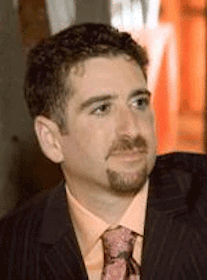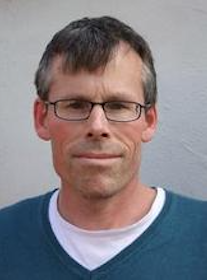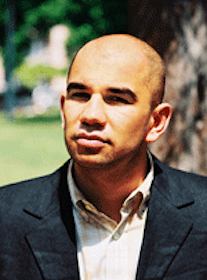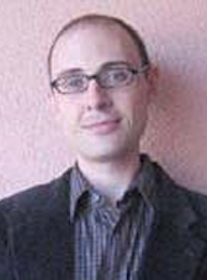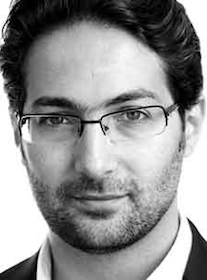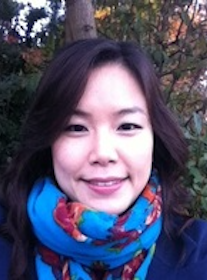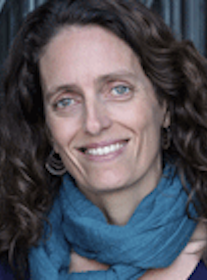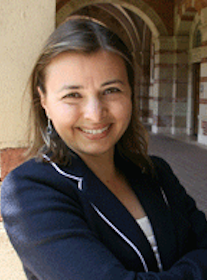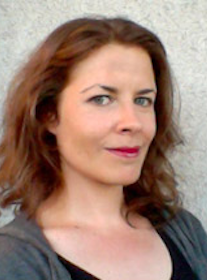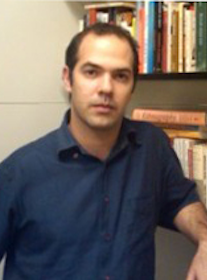237 Alumni
Joel Andreas, Johns Hopkins University
“The 237 seminar was one of the most valuable parts of my experience as a graduate student at UCLA. It was there that I learned how academic papers were constructed, as we collectively scrutinized the work—in various stages of development—of students, faculty, and guests. The seminar not only introduced me to what other people were investigating, but it taught me how to present—and defend— data and arguments in an intelligible and convincing fashion.”
Joshua Bloom, UCLA Graduate Student
“When I arrived at UCLA, I was looking to history to get analytic leverage on my theoretical questions, and 237 immediately became my intellectual home. It is where I learned how to think like a sociologist. You read a paper and you understand some things. But after a good session of 237, the soul of the paper is laid bare. Its true aspirations, its method, its evidence, and ultimately its – which lurk concealed in most papers – stand before you naked. UCLA is blessed with some of the sharpest and most influential comparative and historical minds in the country. I eagerly attended each session to watch these minds in action. Over time, the kinds of questions particular faculty and senior students in our department would ask became familiar, roughly mapping the intellectual diversity of our field. Most importantly, 237 where I learned how to ask sociological questions. I began stumblingly at first, then with more confidence, and eventually developing a sort of following of my own. How simply and irrefutably can you get at the core of the matter? At stake was a shared understanding of social reality. The most powerful questions articulated diverse understandings, exposing the papers’ weaknesses, and building a collective critique. We read deeply in preparation. Can you sever the spine of the argument in a phrase? I soon discovered that the more devastating my questions, the more appreciative the author. It turns out that the weaknesses of papers are often concealed even to their authors – or perhaps especially so. In this way, before my first sociological writings were published, I began to develop intellectual relationships with some of the leading historical and comparative scholars from around the country (and world) who visited L.A. to present in 237.”
Jon Fox, University of Bristol
“237 is where we cut our teeth as budding sociologists. It wasn’t the only place, because being a sociologist has many different facets, but it was probably the only place where we came together as sociologists of different stripes to collaboratively come to grips with different types of sociology. Our graduate seminars taught us how to be critical thinkers; 237 taught us how to take those critical thinking skills and apply them practically to improve the quality of our work. And that’s what we were doing in the first instance: improving our work, not the presenter’s work. Of course, if that week’s (often big-name) presenter benefited somehow from this exercise then that was a plus, but this was more about how our critical engagement with their work enhanced our critical engagement with our own work. Graduate seminars didn’t provide that, but 237 did. And I suspect it did the same for some of the more established scholars amongst us.”
Kurtulus Gemici, National University of Singapore
“One of the first things I heard in graduate school was that fellow graduate students and colloquial seminars would be more important than academic courses in my training and professionalization as a sociologist. I remember feeling skeptical. It took only a couple of meetings of Soc 237 to reverse that skepticism. Over the years, to my amazement, Soc 237 became the venue where I acquired a ‘feel for the game’—a practical sense of what comparative-historical sociology was about and how it was supposed to be done. The seminars also provided, to me and many other graduate students, a lively intellectual community. The fellow graduate students and faculty members in that intellectual community were both the fiercest critics and the kindest friends. Without a doubt, Soc 237 was an essential part and one of the highlights of my graduate training.”
Wesley Hiers, PostDoc Associate, Department of Sociology, University of Pittsburgh
“To describe Soc 237 is to praise it: This seminar provides the opportunity to participate in a rigorous discussion of research papers with professors, fellow graduate students, and the author, not once or twice but fifteen times a year. Thanks to the seminar, one gains regular exposure to academic work at various stages of preparation as well as to a broad range of intellectual and rhetorical styles of engagement. Most valuable of all, for me, was the opportunity to participate in the seminar as an author. Being a seminar author was an honor, a thrill, a challenge, and, above all, invaluable preparation for conference and job talk Q & As—which, after all, take at most half the time!”
Robert Jansen, University of Michigan
“The Comparative Social Analysis Seminar (aka 237) was absolutely central to my graduate training at UCLA. Indeed, apart from my relationship with my advisor, it was the single most important element of that training. To begin with the obvious, 237 provides a venue for workshopping your papers while creating opportunities to engage with top scholars in the field. These things are certainly important and worth taking advantage of. But in my experience, the real value of 237 was in the small stuff: in reading broadly, meeting regularly with familiar faces, participating in the dynamics of the Q&A, seeing how more experienced scholars wrestled with the papers, having informal conversations at the Faculty Center, chatting in twos and threes on the way back to the department. It was through all of these things, and through committing to participate week in and week out, that I truly learned how to evaluate scholarship, to formulate critiques and ask generative questions, to construct a solid research project, to collect and evaluate historical data, to engage with theory and develop sound arguments, and to respond to criticisms of these arguments—all while growing in confidence and developing a clearer sense of my place in the discipline. At the same time, 237 provided an institutional basis for intellectual community and camaraderie. It was a place to connect with faculty. And it was an organic setting for cross-cohort socialization, in which newer students learned from more advanced students, and advanced students got their first tastes of the pleasures of graduate mentorship. I can’t stress enough how fortunate I feel to have had access to such a valuable and unique resource. May it thrive for years to come!”
Hazem Kandil, Cambridge University Lecturer in Political Sociology and Fellow of St Catharine’s College
“Organizing a seminar for comparative-historical sociologists is generally useful in familiarizing students with the latest trends in the field. But the specific format of the 237 seminars at UCLA gives it a clear edge. First, the involvement and regular attendance of faculty members and graduate students fosters a sense of community. Meeting during the session and chatting afterwards at the Faculty Club provides students with an opportunity to discuss their work and share ideas with colleagues and professors. Second, the fact that the guest author must submit written work, rather than present it verbally, forces students to actually explore new projects in depth, and consider problems of structure and prose, not just ideas. It also allows students to develop elaborate and well-grounded critiques of the work at hand, rather than just questions based on a short presentation. Finally, many UCLA graduate students get to present their research to an audience of peers and supervisors, who are familiar with their work and are personally invested in them (as friends and teachers), which allows for a more intimate and nuanced feedback than that received in conferences. I consider the seminar one of my most cherished experiences at UCLA, and I hope that future students will continue to benefit from it.”
Jaeeun Kim, George Mason University (from July 2014: University of Michigan)
“‘We all need a community, but we all have no time for it,’ said Bill (Roy) about the life in graduate school several years ago. I nodded, thinking that “community” is a public good in graduate school where we all struggle, more or less, with a sense of solitude and disorientation. Looking back, I think 237 made it possible for us to produce and enjoy this public good with minimal efforts: read a paper in advance; participate in the discussion; and get yourself a free glass of wine or beer (which, as we all know, requires some effort when multiple deadlines are hanging over our heads) every other week! A sense of belonging did not come immediately. To the eyes of a first-year international student experiencing an acute crisis in self-confidence, the discussion often looked like an elegant sword fight of masters, and I largely remained silent in the back. Sitting surrounded by senior faculty members at the Faculty Center and being casually asked about my research felt awkward, and worse, frightening: ‘I wish I knew what I am doing!’ I said to myself. What pushed me to show up regularly, nevertheless, was the fact that 237 provided one of the few venues where I could observe vibrant discussions among faculty members and graduate students in different stages. Whether the presenter was an academic celebrity of sorts or a third-year graduate student did not matter; neither did whether the substantive topic of a paper interested me. What was most valuable was to become part of the collective effort to deconstruct and reconstruct a given text as if it were my own. I could learn, at first by observation, and increasingly by participation, how to do sociology as a researcher, writer, presenter, and discussant. The horizontal and vertical ties and camaraderie created through 237 embedded me in the department both intellectually and socially, which was immensely helpful during the solitary dissertation writing process (a respite from my round-the-clock sweat pants and hoody, if nothing else!). And I came to appreciate even more what a rare intellectual community 237 provided as I moved beyond UCLA and found another institutional home. I am looking forward to returning to 237 with a new work in progress.”
Mara Loveman, UC Berkeley
“It’s hard to overstate the influence of 237 on my development as a scholar. I entered the Ph.D. program at UCLA without any undergraduate background in sociology. My initial exposures to 237 were like a crash course in how sociologists think. I first began to attend 237 regularly as a chance to learn about new research by some of our discipline’s most interesting minds. While this was certainly valuable (especially when combined with the more informal “offstage” gatherings after the official sessions), looking back from my current perspective I appreciate other things about 237 even more. Participation in 237 made me a better reader – as questions raised by other students and faculty alerted me to issues I had missed. 237 made me a better listener, as I watched invited guests vary tremendously in the extent to which their answers to questions actually addressed the issue at hand. Over time, 237 helped me identify and hone my scholarly voice, through critical engagement with the work of others and the opportunity to try out different ways of asking questions. Most importantly, 237 taught me what it means to be a contributing member of a scholarly community. My other coursework made clear that pursuing a life of scholarship would entail a lot of very hard work, much of it done in isolation. 237 showed me that through sustained engagement in an intellectual community this work could be incredibly rewarding, and even just plain fun. When I had the chance to return to 237 as an invited guest a few years after starting my first job, I was struck by just how exceptional this community was and still is: Staring down a seminar room filled with smart and generous colleagues who have read your work closely in advance and arrived prepared to bombard you with questions and comments — not for the sport of criticism, but for the goal of helping you produce better scholarship? Priceless.”
Zeynep Ozgen, Postdoctoral Fellow at the Max Planck Institute for the Study of Religious and Ethnic Diversity, Germany (Starting Sept., 2014)
“237 has been an invaluable experience throughout my graduate training. On the one hand, it encouraged me to face my professional fears: articulating scholarly critiques, engaging in intellectual public debates, responding to trenchant questions. It was in that inspiring environment I learned to be a sociologist. On the other hand, it de-mystified the enigma surrounding the beauty of a complete intellectual work and the process of scholarship. One rarely gets to see the struggles an author goes through while developing his/her ideas, putting them on paper, and debating them with others. Being able to engage critically with a range of unfinished scholarly products in this environment taught me how to do all of these things myself. Participating in 237 throughout my graduate career was an exceptional intellectual experience. I hope future UCLA students will find it as rewarding as I did.”
Kristin Surak, SOAS, University of London
“There is something eminently social in the best sociological training. Of course, spending a great deal of time by oneself reading good texts is key, but a tight and finished argument rarely reveals the traces of what it took to get there. For me, 237 lifted that veil as we read in-progress work, engaged the author in dialogue, and listened to the ways that other sharp minds probed a text. This, more than anything, taught me how to practice sociology. But the importance of post-session drinks should also not be slighted. Who can be a good sociologist without a good feel for sociability?”
Iddo Tavory, New School for Social Research (from July 2014: New York University)
“I defended a paper at 237, what consequently became a Theory and Society publication (co-authored with Michelle Poulin) on sex workers and intimacy in Malawi. Submitting my work to 237 was crucial in crystallizing my argument in a couple of ways. First, as a student who attended 237, I was so freaked out about sending the paper to be discussed that I worked on it like never before. But more importantly (and more seriously) the comments I received transformed what was a middling paper into a much better one. And, beyond the details of my own presentation, 237 is one of the most important places where I learned how to think sociologically. Watching both faculty and students in action—picking an argument apart and pulling it back together, seeing weaknesses and offering solutions—was truly awe inspiring. It is something I have since encountered every now and again, but never found in a regularly-meeting workshop.”


